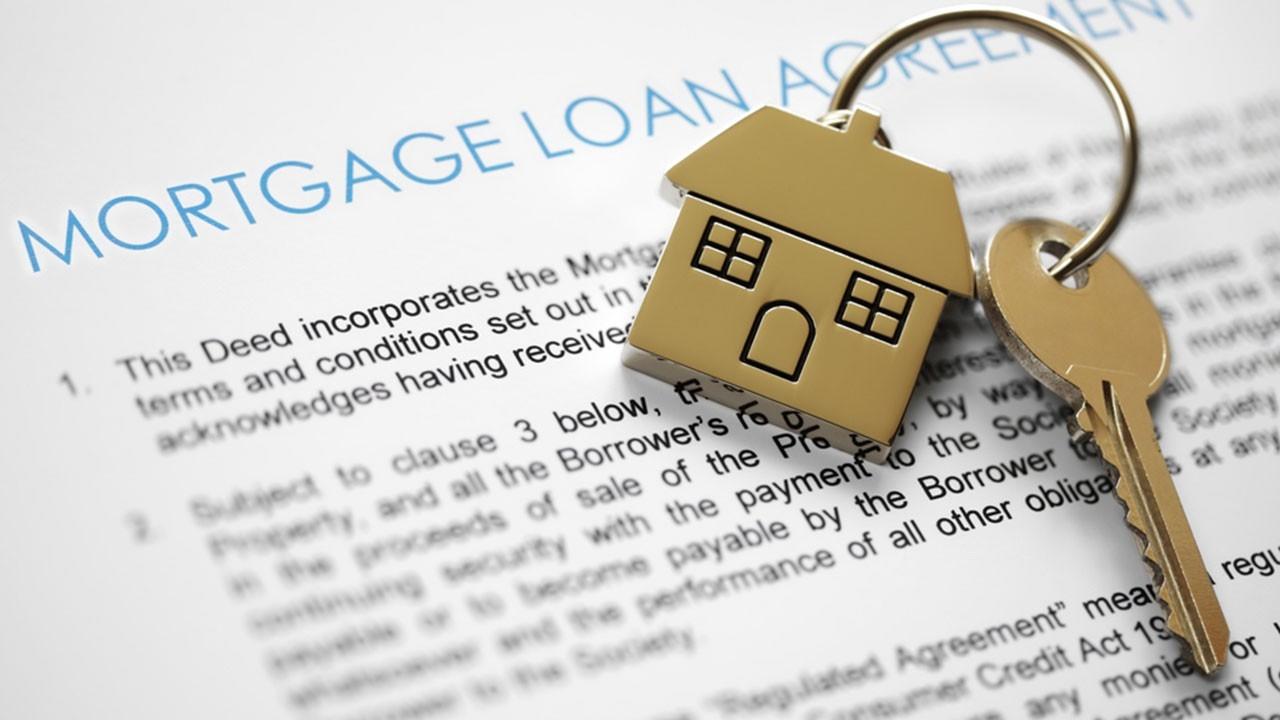Honey, I shrunk the deposit!

When it comes to investing in property the big challenge, especially for newbies, is getting enough money in the bank to pay that all important 25% deposit. Depending on where you are buying property that can run to many thousands of pounds.
So what if you could trim that 25% down to nearer 10%?
Here’s the strategy:
Step 1: Complete the purchase – using bridging finance rather than a BTL mortgage. Some properties won’t be mortgageable anyway, but that doesn’t mean they’re a bad buy.
Step 2: A quick exchange of contracts. This can be done as soon as your loan is approved and as soon as your solicitor is able to arrange it. We should be talking days here, rather than weeks and certainly not months.
Step 3: Quick completion. Again, that will be as fast as your solicitor is able to do it. Often this will be in 28 days or even quicker.
Step 4: Execute your exit strategy from the day of purchase. This means if you’re planning to sell, put it on the market. If you’re planning to...
Does flipping after three months affect mortgage potential

THE QUESTION
I’m flipping a house after three months, I’ve heard most lenders won’t lend against a property unless I (the seller) have owned it for at least six months!, is this right?
THE ANSWER
That’s true to a point, but it depends on the lender. A number of BTL lenders impose this restriction on the seller.
However, you shouldn’t really be selling to other investors as they view it as a logical rather than emotional purchase, often not wanting to pay full market value.
Main residence lenders are different, to a degree. There are some that still impose the same restriction on sellers, but it is not across the board by any means.
So your buyers will not have access to all lenders (subject to their circumstances) until you have owned the property for 6 months. The net result of that is they may be excluded from some market leading deals.
The key here from people who successfully sell within 6 months is - transparency. You should be open with everyone concerned, your agent,...
No cash? No problem!

The problem with buying property as an investment is that you need to have enough money to put down as a deposit – and then it’s locked into your property for six months or more, until you can remortgage. The days of ‘no money down’ mortgages are gone; you need a deposit to get any mortgage these days, usually 25% of your purchase price.
At this rate you’ll be lucky to add two properties a year to your portfolio, unless you have a big nest egg.
The secret is not to lock your capital into a mortgage, but to use creative financial packages specially developed for property investors.
Do you fit the buy-to-let lender’s typical profile?
Don’t lenders love property investors, because they have plenty of assets so their mortgage is secure?
No!
Buy-to-let lenders like their clients to have a nice, secure full-time job earning a minimum of £25,000 a year and have their own cash for at least a 25% deposit. If you have too many properties it can make them nervous in case you leave your se...
How to get your money back

If you’ve been in property a while you’ll remember the balmy days of 100% mortgages and 24 hour remortgages. Things are tougher today and property investors need to be innovative to continue to invest in property and not end up with your capital trapped in bricks and mortar.
Many investors now think the only way to invest in property is to have saved up a substantial wad of cash to put down the 25% deposits required by most buy-to-let (BTL) lenders.
That’s not true – and a smart investor can actually increase their profits, rather than barely get by – if they know how.
Lenders have rewritten the rules
Before the credit crunch you could get 85% loan-to-value (LTV), you could get a same day remortgage and you could buy below-market-value and remortgage at true value.
Now things have changed. These mortgages no longer exist and ‘no money down’ strategies are usually the result of hiding how the property is being financed from the lender – in other words, fraudulent.
It’s now much ...
What’s the best option to buy property?

THE QUESTION
I'm not a homeowner, but looking to purchase - either residential, BTL or to buy a derelict property and flip.
I have a limited company with a turnover circa £200K and projected to double that in the next year. I have no personal debts or defaults and a good credit rating.
I'm entrepreneurial, confident I can flip properties, and would like some guidance in funding purchases. I've heard bridging finance, but don’t know if it’s the right strategy for me.
THE ANSWER
You have several potential options:
Use your main residence to flip
Advantages: no tax (CGT or income) payable on the profits
Disadvantages:
- Slow turnaround, as you will need to live in the property for at least a year to qualify for the no tax advantage
- Your ability to borrow is income-dependent and lenders are not interested in how much your company turns over, but how much profit you make i.e. make £20k profit on your £200k turnover and you won’t be getting offered much of a mortgage
- Disruption ...
No cash? No problem!

When you’re buying property as an investment you need capital to put down a deposit – and then it’s locked into your property for six months or more, until you can remortgage.
With this approach you’ll be lucky to manage to add two properties a year to your portfolio, unless you have a very big nest egg. The do you want to lock your capital into a mortgage? You don’t have to, there are creative financial packages specially developed for property investors.
Do you fit the BTL lender’s typical profile?
Buy-to-let lenders like their clients to have a nice secure full-time job earning a minimum of £25,000 a year and have their own cash for at least a 25% deposit. If you have too many properties it can make them nervous in case you leave your secure job to become a full-time investor.
They don’t like people who want to remortgage their property after six months when the property has been refurbished and is now worth a lot more.
Serious property investors need to take a different app...
A property with challenges - yes or no?

THE QUESTION
I have found a property I want to get a buy to let mortgage for, but I have a bad credit rating. The house also has no kitchen, are there any lenders that would be able to provide a mortgage for this?
THE ANSWER
Take a reality check on this one, you have zero chance of getting a mortgage on this property as a means of buying it.
Leaving aside your credit history, a property has to be lettable on day one to get a mortgage; if it has no kitchen, it plainly isn’t that. So it is a non-starter in the way you want to purchase it.
For a property to be mortgageable:
- As a main residence - it has to be habitable
- As a BTL it has to be lettable and that is different to habitable. It means, in the lenders' surveyor's opinion, a tenant would want to pay good money to rent it on day one
Fitting a kitchen between exchange and completion might work, but if the rest of the property is not in good repair, it is still unmortgageable. It's very unusual to find a pristine property...
Leases on BTL properties

THE QUESTION
When looking to buy a BTL property at what point does the length of the lease term start becoming a factor and should be taken in to account?
THE ANSWER
80 years is a pivotal number, because you cannot get the freeholder to extend the lease until it reaches 80 year point. However, from a mortgage lenders point of view 80 years is not that pivotal, it is quite easy to get a mortgage below 80 years but it does start to get problematic the further you drop below 80 and when the lease has 70 years or fewer to run it starts to become an issue for mortgage lenders.
Mortgage lenders like to have a comfort zone of years left on the lease at the end of the mortgage and this will vary lender to lender, some want as much as 45 years, others will be happy with 30 years and most would be somewhere in between. Given that most people take a 25 year mortgage then 70 years become the pivotal number in terms of getting mortgage lending. Below 70 years and your choice of lenders steadily...
Equity release to build investment

THE QUESTION
I want to release some equity from properties I currently have to purchase some more. Who would be the best person to give me advice?
I'm also trying to find out how easy a property is to remortgage once it's been renovated. Is there a specific period of time you have to wait before you can remortgage?
THE ANSWER
My first tip is to pick an adviser who is an investor themselves, they will understand your thinking in terms of recycling your cash; some mainstream advisers know very little about investing in property. If you find yourself teaching your broker, you have the wrong broker.
On your second point, almost all BTL lenders restrict applications to remortgage a property that you own until you have owned it for six months. It is often referred to as the 'six month rule', but is optional as to whether lenders choose to invoke it or not.
The very few BTL lenders who choose not to invoke it will remortgage your property within 6 months of purchase, BUT only at the ...
One Lease, three flats ...

THE QUESTION
I am looking at a property block of flats that records show hasn't had any sort of planning for a conversion. However, the land registry shows that one of the flats is on a lease. There are three dwellings in the block shown on the planning map. Does that mean that the property may have been converted without consent?
If they have no planning consent then can I offer to buy out the freehold and create leases on the properties?
THE ANSWER
For decades landlords have decided, almost on a whim sometimes, that they can get more income out of a house converted into flats than a single house. Some apply for the required planning permission to do the conversion; some don’t bother and just do it anyway because it seems like a good idea to them.
If you have checked with the local planning office and they tell you no permission has ever been granted, then it will have been an illegal conversion.
This makes it unmortgageable as no lender will lend where the possibility exists,...




